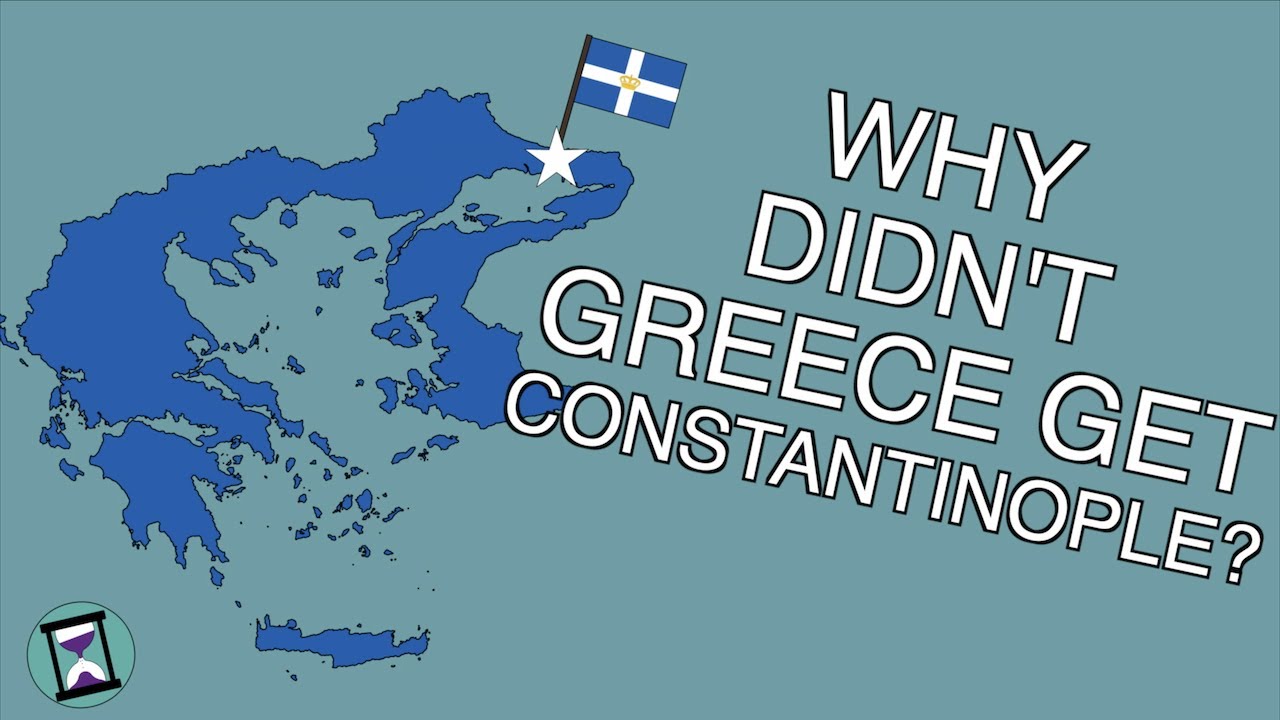Greece (after Russia) really wanted to get its hands on Constantinople after World War One and the surrender of the Ottoman Empire. And given its history as a Greek city and the heart of the classical Greek world, why didn’t Greece get the city? To find out watch this short and simple animated history documentary.
Category: Europe
-
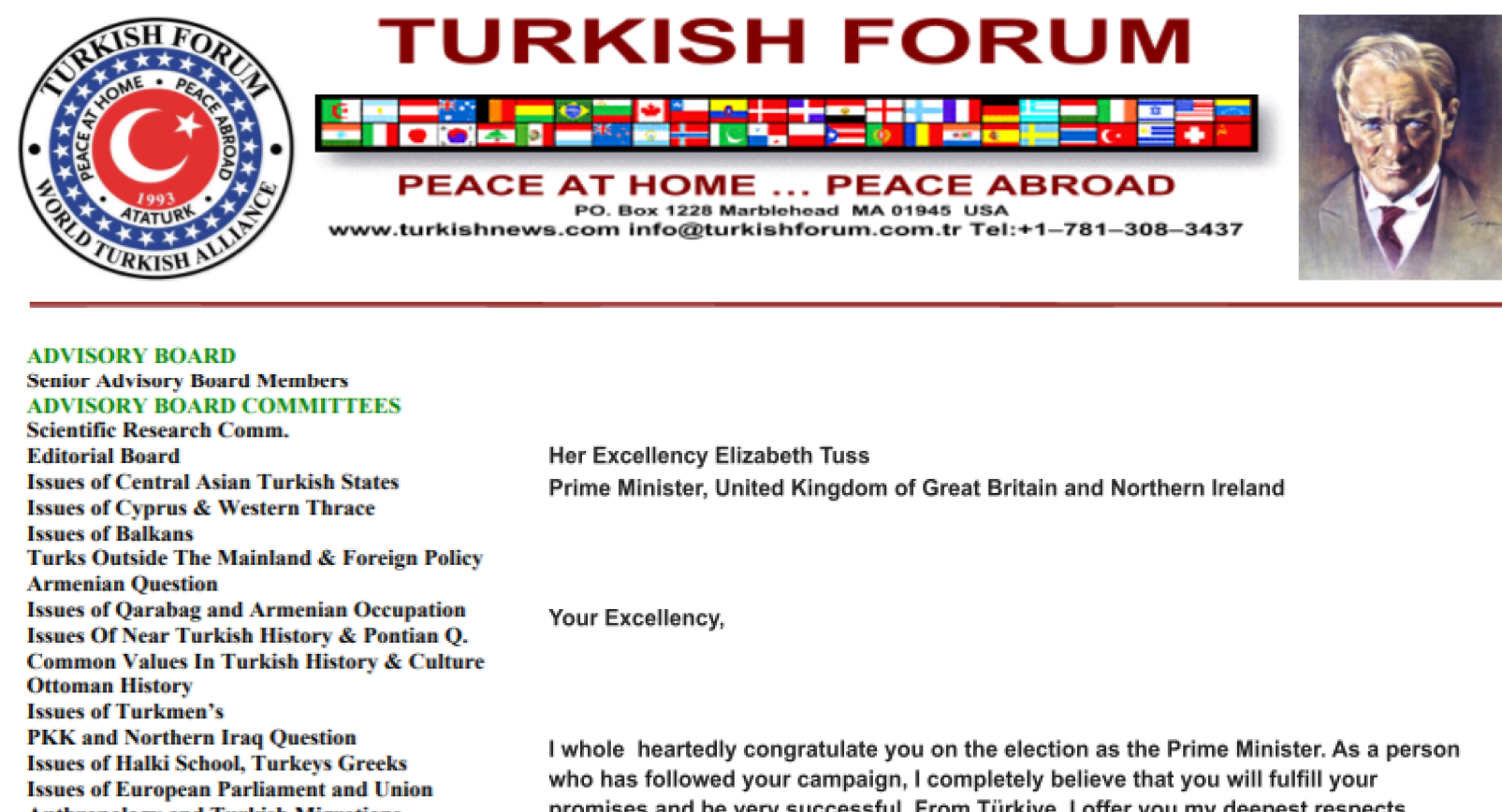
Congratulations letter to prime minister
Her Excellency Elizabeth Tuss
Prime Minister, United Kingdom of Great Britain and Northern Ireland
Your Excellency,
I whole heartedly congratulate you on the election as the Prime Minister. As a person who has followed your campaign, I completely believe that you will fulfill your promises and be very successful. From Türkiye, I offer you my deepest respects.
Sincerely,
Orhan Tan
Major General (Rtd)
Member of Turkish Forum Advisory Board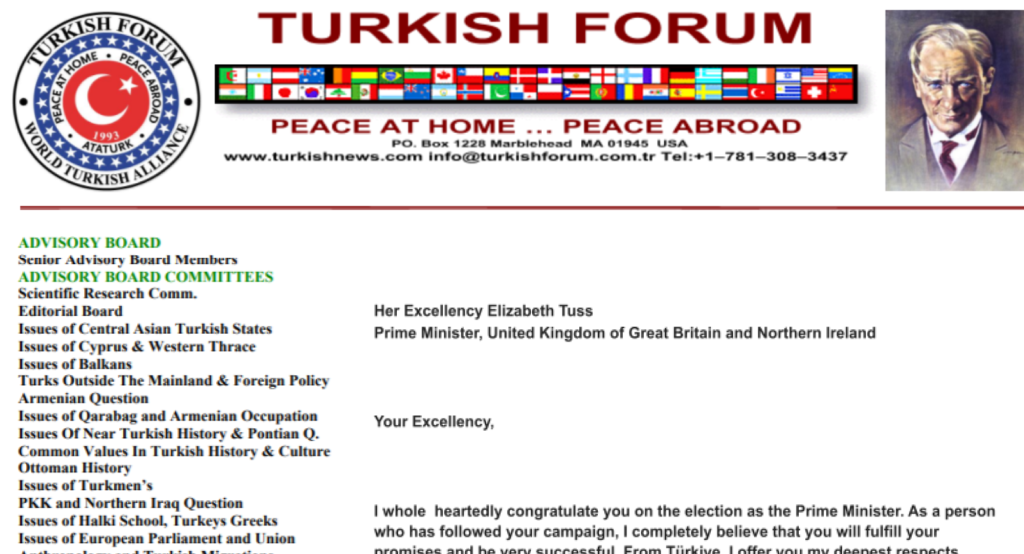
-
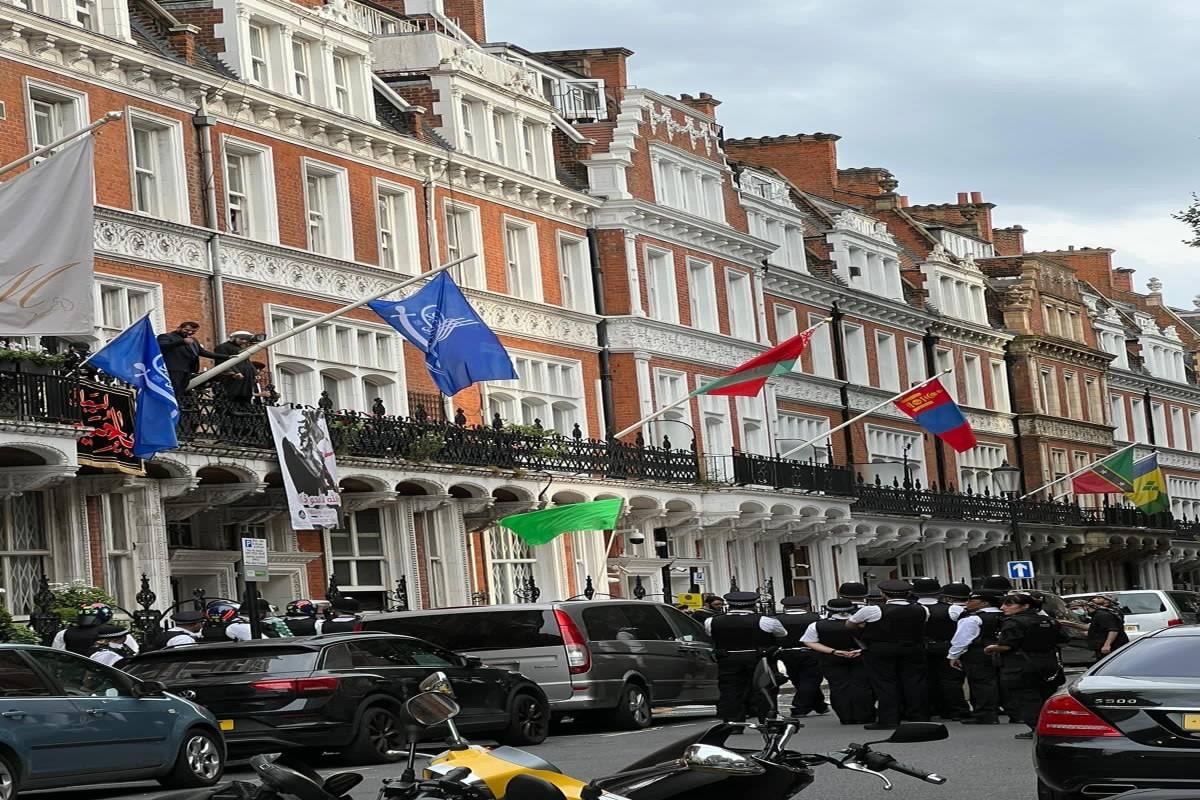
British Media Failed to Cover Terror Attack on Embassy in London
By Azer Hasret
On August 4, 2022, a group of radical Shia Islamists had attacked the Embassy of Azerbaijan in London. The action happened early afternoon at a worktime. What was strange British police was present and they did not prevent attackers from this wrongdoing.
According to media reports radicals approached Embassy’s building, entered, took away some of the belongings and damaged them.
Then a dozen of members of the group went on the balcony of the Embassy, hoisted so-called flag of Huseyn. Some of them wrote something in Arabic language on the walls and windows of the Embassy which is located at the 2nd floor of the building.
Afterwards one of the assailants approached the flag of Azerbaijan, took it away and dropped on the street.
The national flag of Azerbaijan, pictures of Azerbaijani President Ilham Aliyev and his father, former President Heydar Aliyev were walked through by the radicals on the street.
And these actions were perpetrated before the eyes of London policemen who were very tolerant towards these wrongdoings.
After some 2 hours of the action policemen arrested several perpetrators. Everything was filmed and aired live.
Wasn’t this strange?
That was.
In the center of the city like London a group of radicals attack an embassy, damage belongings and policemen present do not take action to prevent this vandalism…
That was strange appearance in the most known and most secure city of the world…
So as this action happened one could think that the UK media would cover this kind of attack in the city. But what happened to the most “independent” and “free” UK media?
According to the reports most mainstream media of the UK preferred to keep silence regarding this terror attack on the Embassy of Azerbaijan…
Being a citizen of the new democracy – Azerbaijan we were really shocked not due to action of vandalism taken against the Embassy, but due to the silence of the UK mainstream media.
Wasn’t that really news worth case? Imagine, a group of radicals claimed to be Shia Islamists attack an embassy, damage its property, and this happens in more than two hours period in front of the UK police. And this story is not news worth for the UK media.
But we remember even one man whatever does in London and across the world the UK media covers it. Usually, they like to show while someone claiming to be Muslim takes any radical action. The UK media covers this kind of cases bringing to readers/viewers/listeners as a case of “radical Islam”.
Now what happened? A group, attacking Azerbaijani Embassy claimed to be Shia Islamists and they are known as radical group. They claim to be “Mahdi Servants Union” and stated an attack as response to the Azerbaijani Government “repressions” against Shia Muslims.
Just to remind, Azerbaijan is a secular new democracy, and no religion is suppressed here. But some people misusing Islamic religion for dirty purposes by the order of the Islamic Republic of Iran are trying to destabilize Azerbaijan. So, the Government of Azerbaijan takes preventive measures in order to assure stability and security. In this case radical religious groups claim to be oppressed and the likewise groups as “Mahdi Servants Union” use this opportunity to showcase against Azerbaijan.
And in this case the UK mainstream media keeps silence, turns blind eye and thus shows its bias towards the nations and countries.
That was the UK media which used to cover even the garbage dumps in Azerbaijan during the 1st European Games staged in Baku in 2015. They were paying very high “attention” on Azerbaijan using any small opportunity.
But what happened now? Why the UK media failed to follow the principles of impartiality and media ethics and prevented itself from covering a brutal attack on the Embassy?
Was that due to the Embassy being the Azerbaijani one? What would happen if the radical “Muslims” would attack any other country’s embassy like for example the Embassy of Armenia or etc.?
We believe, that the UK media would cover this attack as “terror attack of Muslim group on Christian country’s embassy”.
Then they say that the UK and even all Western media are free and independent…
-
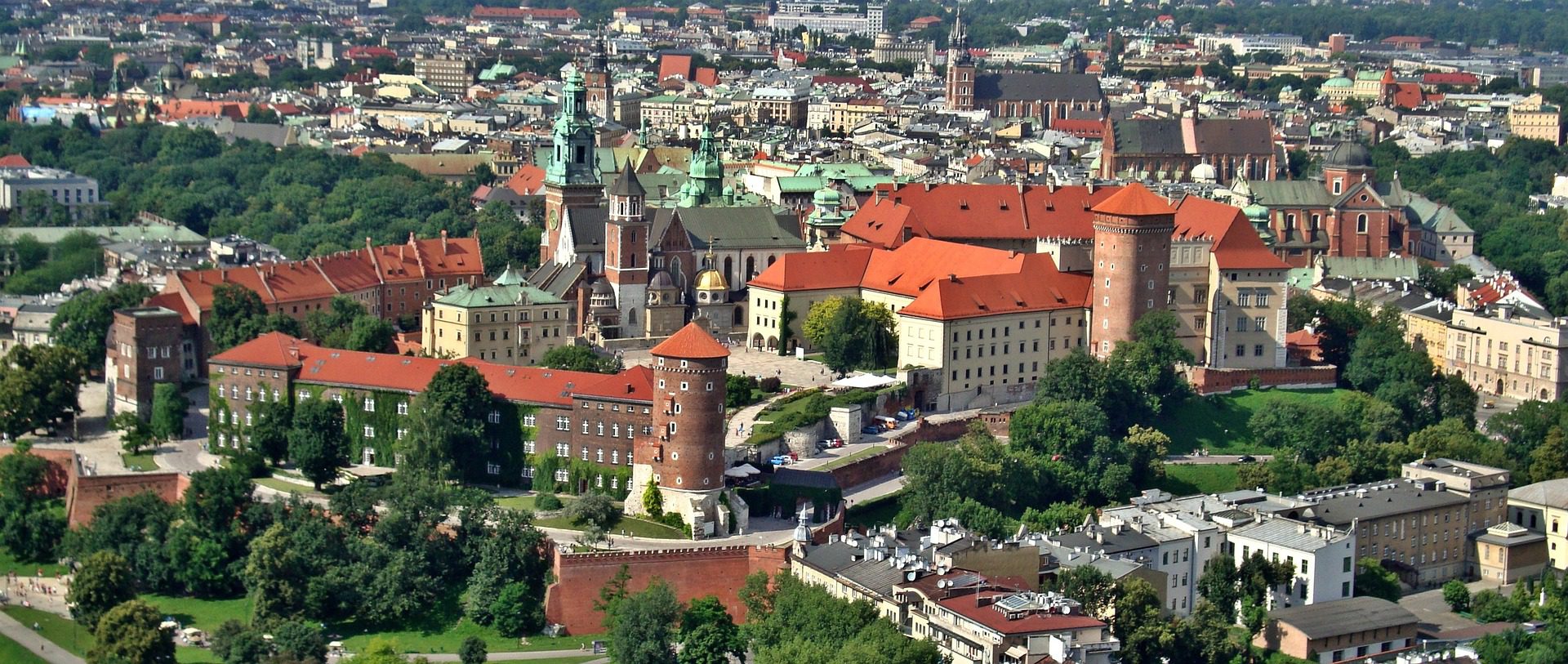
Poland’s Foreign Policy Towards Middle East
Poland’s Foreign Policy Towards Middle East After 1989
Dr. Magdalena KUMELSKA-KONIECKO University of Warmia and Mazury in Olsztyn
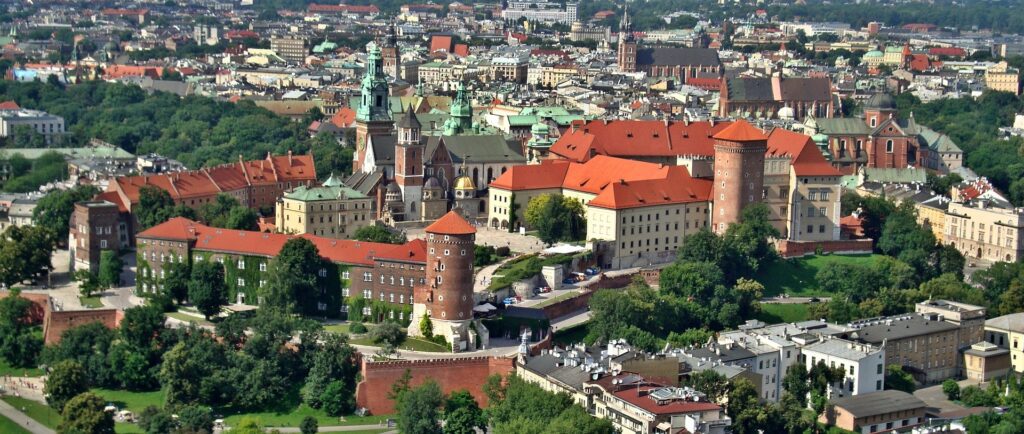
Middle East in Polish foreign policy, after 1989, addressed secondary significance. The first priority of Poland’s diplomacy after 1989 was to pursue the return to Europe conception established by Polish prime minister – Tadeusz Mazowiecki and minister of foreign affairs – Krzysztof Skubiszewski. The main objective of the return to Europe conception was membership in the North Atlantic Treaty Organization as well as in the European Union. Before the democratic transformation period, which was the effect of bipolar system dismantlement, Polish Middle East policy was conditioned ideological premises connected with affiliation to Eastern Block. Typical for Eastern approach to Middle East was isolation of Israel, advocate for Palestinian in their aspiration to build an independent state, favoring and developing cooperation with Arab counties of the region. In reality the relation with Arab countries limited to political support and scarce trade cooperation.
End of the cold war has brought some changes in Poland’s Middle East policy. First significant move was the normalization of Polish relations with Israel. The next step was to establish relations with Arab countries especially with those which Poland didn’t have yet. Among other goals of Polish foreign policy in the Middle East we can mention: promotion of democracy and human rights, reinforcing economic relations, humanitarian aid and institutionalization of cooperation in the broad sense. Important area of Polish activity in the Middle East, after 1989, was participation in American intervention in Iraq in 2003, as well as UN peacekeeping missions in Lebanon and in the Golan Heights.
Noticeable element of contemporary Polish Middle East policy is it’s convergence with the United States of America security strategy. These are: fight against terrorism, countering proliferation of weapon of massive destruction, promotion of democracy and human rights. Moreover, Poland as a member of European Union is also oblige to pursue common foreign and security policy. Unfortunately, Poland did not develop coherent, independent Middle East policy, which confirm the assumption that the Middle East is a region of low Polish interests.
Key Words: Poland, Middle East, the USA, Iran, the European Union, Russia, foreign policy, security strategy, international relations.
Introduction
Middle East is one of the crucial region in the contemporary international relations. The importance of Middle East comes form for expamle possessing 2/3 of world’s crude oil and almost a half of natural gas resources. Representative for Middle East region is it’s unpredictability and unstability, which is bringing attentions of powerfull interantional relations players. Beyond many security issues which afflict Middle East prime are: Israeli-Arab/Palestine militray conflict, war in Syria, Iran’s nuclear programme, terrorist therat provoked by Daesh, al-Qaeda, PKK and other terrorist group, instability in Iraq, Lebanon, Yemen and insecurities coming from refugees case.
Poland in the past has never proved special attention to Middle East, however Polish authorities related to some of the process coming there1. Before reclaming independence in 1989, Polish policy towards Middle East was conditioned to internal and external premises coming from affiliation to the Eastern Block2. For example in the 40’s Polish government, like the USSR, approved creation of Isreal state, and later analogously to Moscow, supported Arab states against Isreal. During the cold war Polish approach toward Middle East was characterized by hostility toward Israel, aiding Palestine, developing close, political realtions with Iraq, Yemen, Syria and Egypt.
After the collapse of the USSR and definitive end of cold war, Poland started to create its own foreign policy. Concerning Middle East, Polish government decided to redefine foregoing direction. First example of new approche was decison to normalize relations with Israel, simultaneously preserving relations with Arab states. Neverteless, domestic problems and conentration on priorities objectives, definitely weaken Poland’s intrest on Middle East.
Main Directions of Polish Foreign Policy after 1989
End of the cold war era, has brought significant changes in Polish foregin policy. After conducting, so called partly-free, parlimaentary elections on 4th of June 1989, newly establish government coming from the Solidarity Movement – Tadeusz Mazowiecki – as a Prime Minister proceeded to develope objectives of Polish foreign strategy. The biggest priorities for Poland after 1989 were finding new security guarantees and opportunities for economic development. In other words it meant the beginning of Polish efforts to join the North Atlantic Treaty Organization and the European Union.
1 M. Szydzisz, Polityka zagraniczna RP wobec Bliskiego Wschodu – zmiana czy ciągłość?, “Dyplomacja i Bezpieczeństwo”, 2016, No 1(4), p. 185.
2 A. Dzisiów-Szuszczykiewicz, Raport. Bliski Wschód – wyzwanie dla polskiej polityki zagranicznej?,
“Bezpieczeństwo Narodowe”, 2008, No 7/8, Vol. 1/2, p. 147.Polish authorities believed in Poland’s return to Europe concept, based on the confidence that Poland belong to Western civilization3. Prime Minister Mazowiecki was confident that traditional consolidated democratic states enable Poland fulfilling its objectives. Polish diplomacy under the guidance of professor Krzysztof Skubiszewski considered that Germany would play crucial role in Poland’s accesion to the European Union, whereas the United States of America would be pivotal for Polish aspiration to NATO.
The Polish government began to implement the strategy of reconciliation between the Polish and German nations, which might to lead to the normalization of bilateral relations based on the principles of friendly and equal cooperation4. Poland, despite concerns about vague German stance towards Polish-German border on Odra River and Nysa-Łużycka River, decided to grant full support for German reunite process. In Krzysztof Skubiszewski view Poland’s decision was coherent with Polish-German unity of interests5. The basis for this assumption was common thinking for Poland and Germany about the future of Europe and the world. They agreed with the idea of European unity, meaning a policy of consolidating a divided continent based on respect for human rights, democracy and the rule of law6. On 14th November 1990 Poland and Germany has signed Border Treaty which recognized the course of Polish- German border in accordance with the provisions of World War II peace conferences (Teheran, Yalta, Potsdam). Less than a year later states has signed a Treaty between Republic of Poland and Federal Republic of Germany on good neighborhood and friendly cooperation (14.11.1991). Polish-German cooperation was profitable for both sides – German became promoter of Polish interests in European area, Poland on the other hand became “linkage” between East and West. Moreover, putting Warsaw into Western security and cooperation zone has moved West border to the East, changing at the same time Berlin geopolitical location.
The priority objective of the Polish raison d’etat, since becoming independent of the USSR’s domination, was to base Polish security on allied relations with the most powerful country in the world, the winner of the Cold War confrontation – the United States of America. Poland form the very beginning of 1989 desired to give unique character of Polish-American relations. Polish authorities expected Washington to support the transformation process and embrace Poland with American security guarantees. The process of democratization in Central and Eastern European countries in the United States was received with great satisfaction, it perfectly entered into
3 R. Zięba, Główne kierunki polityki zagranicznej Polski po zimnej wojnie, Warszawa 2010, p. 19.
4 M. Kumelska, Kierunek Waszyngton. Redefinicja polskiej polityki zagranicznej po wyborach czerwcowych, (w:) Polska – 25 lat po wyborach czerwcowych. Konsekwencje dla polityki wewnętrznej i pozycji międzynarodowej, T. Astramowicz-Leyk, W. Tomaszewski (ed.), Olsztyn 2014, p. 176.
5 See more: Polska – Niemcy 1945-2007. Od konfrontacji do współpracy i partnerstwa w Europie,
W.M. Góralski (ed.), Warszawa 2007.
6 R. Zięba, Główne kierunki polityki zagranicznej Polski po zimnej wojnie, op. cit., p. 57.America’s vision of New World Order based on the peaceful relations, democracy and free market economy7.
The TUSA perceived Poland as a leader of transformation among Middle-East European countries. Poland was the first country in the region, who was covered by the US system of general customs preferences; Washington transferred 200 M $ to Stabilization Fund for Poland and reduced Poland’s debt by 70%8. On 20th March 1990 Poland and the USA signed economic agreement and Declaration on relations between the Republic of Poland and the United States. From Warsaw’s perspective declaration of will was far from Polish expectations, but at the beginning of 90’s the US couldn’t offer more.
9 years later Poland as well as Hungary and the Czech Republic became new members of NATO. Without America’s will and of course changing geopolitical circumstances, enlarging NATO on East wouldn’t have been possible. Gaining membership in North Atlantic Treaty Organization (20.03.1999) and the European Union (1.05.2004) was capstone of Polish priorities launched at the beginning of the 90.
Poland’s foreign policy after 1989, beyond Euro-Atlantic vector, was also concentrated on Eastern vector. While the implementation of the strategy for Poland’s return to Europe became a priority, it was also important to shape relations with the Soviet Union/Russia Federation and states formed as a result of its disintegration behind Poland’s eastern border9. One of the priority of the Polish raison d’etat was full recognition of Poland’s sovereignty by the Soviet Union, followed by the arrangement of bilateral relations on a partnership basis and good neighborly cooperation. Polish authorities were extremely cautious in contact with Moscow, including indubitability of the Soviet Union superpower position, nor did make violent attempts to withdraw from the Warsaw Pact or the Council for Cooperation and Economic Aid, although Poland pointed the need to democratize both organizations. Polish eastern policy of the beginning of the 1990 was based on the concept of two-track strategy, which meant the simultaneous development of rebuilt relations with the USSR and union republics10. Polish diplomacy till 1994 signed with all Eastern neighbors Border Treaties and Treaty on good neighborhood and friendly cooperation including: the Russia Federation (1992), Belarus (1992), Ukraine (1992) and Lithuania (1994). Furthermore, regulating border courses was one of many criteria NATO set for the candidate countries.
7 See more: H. Kissinger, Dyplomacja, Warszawa 2004.
8 See more: L. Pastusiak, Prezydenci amerykańscy wobec spraw polskich, Warszawa 2003, p. 280-331.
9 M. Kumelska, Kierunek wschodni w polskiej polityce zagranicznej po 1989 roku, (w:) Polska – 25 lat transformacji systemowej. Polityka. Gospodarka. Bezpieczeństwo, T. Astramowicz-Leyk, W. Tomaszewski (ed.), Olsztyn 2014, p. 177.
10 Ibidem, p. 180.Undoubtedly, the success of Polish diplomacy of this period was the popularization of the belief that in the name of the future good relations with neighbors one should strive to give up creating a balance of historical past and urge partners to adopt a similar attitude.
Poland’s Approach towards Middle East after Cold War
Regaining independence by Poland after 1989 allowed it to conduct foreign policy autonomously, also towards Middle East.
At the beginning of the 90’s Polish diplomacy decided to normalize relations with Israel. It is worth emphasizing that in 1967 due to outbreak of 6-days war Poland severed diplomatic relations with Israel as did the USSR. The renewal of diplomatic relations took place in February 1990, but already in 1986 the so-called interest representatives were opened in Tel Aviv and Warsaw11. Rebuilding Polish-Israeli relations was important in view of joint history and diasporas living in both countries. In May 1991 Polish president – Lech Wałęsa – came to Tel-Aviv and gave a speech in Knesset concerning future bilateral relations. The lasting and deep relations that currently connect Poland and Israel include close cooperation in the areas of politics, defense, economy, culture and education. These relationships are based on mutual interests, shared values and a similar assessment of the international situation, but are also a natural continuation of almost 1000 years of common Polish-Jewish history12. Since 1990 Poland and Israel has signed 19 agreements and understandings. The importance of mutual Polish-Israeli contacts is also emphasized by the fact joint government meetings, so-called intergovernmental consultations, that take place continuously since 2011; the only country beside Israel involved in such cooperation with Poland is Germany13.
Between 1990 and 1991 Poland participated in the implementation of Desert Shield and Desert Storm operations, which gave Polish authorities wider perspective on Middle East problems14. Beyond opening to Middle East issues, Poland pursued the US vision on regional order in this part of the world. In some sense it was a strategic decision aimed at gaining the USA favor for Polish case vide membership in NATO.
11
12 Ibidem.
13 M. Szydzisz, Polityka zagraniczna RP wobec Bliskiego Wschodu – zmiana czy ciągłość?, op. cit., p. 187.
14 A. Dzisiów-Szuszczykiewicz, Raport. Bliski Wschód – wyzwanie dla polskiej polityki zagranicznej?,
op. cit., p. 148.Generally, at Polish approach towards Middle East, after 1989, we can distinguish 3 consistent elements15:
⦁ Involvement in activities concerning development of democratic system and protecting human rights.
⦁ Restoring or establishing new diplomatic relations with Middle East countries.
⦁ Institutionalization of existed cooperation and enhancing economic ties.Until the beginning of the new century, Poland foreign activity was submitted to fulfilling the return to Europe concept. Hence, interest in Middle East has weakened considerably. According to Renata Włoch, Polish foreign policy towards developing countries, including Middle East, can be specifies as parochial run by uninfluential country16. This opinion is not without reason, indeed Poland as a subject of international relations at the turn of 20th and 21st centuries had little, international significance. Poland’s interests in the Middle East were limited as it was it recognizability. Situation has changed after 9/11 terrorist attack on the United States of America. The beginning of American war against global terrorism and its supporters had influenced greatly Poland foreign and security strategy. Form the very beginning Poland provided full support to American ally. Referring to allied loyalty and obligations arising from NATO membership, Poland took part in the military operation against Afghanistan and later Iraq. The Iraqi operation had all the advantages and disadvantages, but form its strategic importance had significant meaning for Warsaw; Poland has emerged internationally as independent strategic entity, capable of making decisions instead of just following other major allies in the European Union such as France and Germany, who were pursing anti-American policy17.
In 2004 Polish government adopted a document called Poland’s Strategy towards developing un-European Countries. According to the strategy Poland as member of the European Union would implement obligations coming from The Barcelona Process (Euro-Mediterranean Partnership) and Wider Europe – New Neighborhood Strategy with regard to cooperation with Middle East states.
Poland as a member of the European Union, consequently participant of the globalization process had to start making more contributions to development aid,
15 See more: J. Bury, A. Kołakowska, A. Szymański, Polska a Szerzy Bliski Wschód. Stosunki i perspektywy współpracy (BMENA), “Polski Przegląd Dyplomatyczny”, 2006, No 2.
16 R. Włoch, Polska a polityka Unii Europejskiej wobec krajów rozwijających się, (w:)
17 R. Lewandowski, W. Lewandowski, Konsekwencje zaangażowania Polski w Iraku, “Bezpieczeństwo Narodowe”, 2009, No 9/10, Vol. I-II, p. 37.aimed at modernization and socio-economic development countries from non- European areas, including the Middle East; Engagement was one of Poland’s new tasks within the EU structures in efforts to guarantee peace and security, and supporting democratization initiatives of individual countries18.
Polish development aid is directed mainly to Palestine as well as Lebanon, Syria and Jordan in the framework of little grant system. Assistance activities for the Palestinian under the development cooperation program focus on improving access to education, equalizing educational opportunities and raising the level of education , improving water and sanitation infrastructure, including better access to water and municipal waste management, professional activation in the field of agriculture, trade and services as well as supporting business activity and strengthening the self-government of entrepreneurs 19. The total value of development assistance provided by Poland to Palestine in the period 2005-2016 exceeded PLN 25 M. The aid was intended for20:
⦁ Human capital – improving the quality of health care, inclusive education and universal access to high-level education, civic education, social integration of people from groups at risk of exclusion.
⦁ Agriculture and rural development – food security, productivity and competitiveness of agricultural production, access to markets, use of modern technologies in agriculture, modernization of local infrastructure.
⦁ Entrepreneurship and the private sector – the competitiveness and innovation of micro- and small enterprises, social economy, entrepreneurship, especially women and youth, vocational education and training.
In Multiannual Development Aid Program 2016-2020 Poland confirmed the priority of Palestine in the distribution of development assistance21. The objectives towards Palestine remained as mentioned above. An important change in the document was placing, for the first time, Lebanon as a priority state for Polish development cooperation. Since 2012, Poland has been continuously providing humanitarian aid to Lebanon in the areas of shelter, health protection and education. In order to ensure the most effective response to the protracted crisis, Poland adopts an approach in which it seeks to link humanitarian and development activities. As a result, it allows to supplement the most urgent humanitarian needs with development activities of permanent and structural character22.
18 A. Dzisiów-Szuszczykiewicz, Raport. Bliski Wschód – wyzwanie dla polskiej polityki zagranicznej?,
op. cit.,p. 168.
19
20 See more:
21 Multiannual Development Aid Program 2016-2020, p.10.
22 Ibidem, p. 10.According to Poland’s Strategy towards developing un-European Countries the most important priority for Poland in relations with Middle East counties is economy. Besides reinforcing economic ties Poland had set such goals as23:
1- Fulfilling the obligations coming from Iraq Mission. 2- Supporting peace between Israel and Palestine.
⦁ Sustaining dialog with Arabs states, Israel and Iran.
⦁ Seeking cooperation with The Cooperation Council for the Arab States of the Gulf. 5- Explaining objectives of Poland’s involvement in Iraq (especially on society level). 6- Strive to achieve the status of responsible partner of the region.
In compliance with Poland’s Strategy towards developing un-European Countries internal and external conditions of a given country, e.g. political destabilization, conflicts, religious fundamentalism will have an impact on undertaking cooperation or failure to do so24. Incontestably, this approach restrict potential cooperation. More importantly term religious fundamentalism is not very clear, strategy doesn’t explain what does it really mean.The strategy states that Polish government contacting with Middle East countries will use: political dialog, diplomatic presence, cooperation and development aid, promotion of Polish culture and science. According to the document the most effective tool of Polish foreign policy in the region are agreements and understandings25. Between 2003 and 2007 Republic of Poland has signed with several Middle East counties: 6 bilateral agreements, 2 bilateral memorandums, 5 bilateral deals, 2 bilateral cooperation agreement and 1 bilateral protocol.
Among the most important countries in the Middle East, the document has highlighted: Iraq, Saudi Arabia, United Arab Emirates and Kuwait26. Poland wished to develop close economic relations with those countries, especially in the field of energy resources. This is dictated by the need to diversify supplies from the Russia Federation27. Qatar turn out to be a country that really supports Poland in the process of its diversification of Russian gas supplies. In 2009 Polish Oil and Gas Mining (Polskie Górnictwo Naftowe i Gazownictwo – PGNiG) has signed a 20-year contract with Qatar for gas supplies. The first delivery of Qatari gas to the Polish terminal in Świnoujście took place in November 2015 and is supplied regularly.
23 Poland’s Strategy towards developing un-European Countries, November 2004, p. 32-39.
24 Ibidem.
25 Ibidem.
26 Ibidem.
27 See more: D. Boćkowski, Polska polityka zagraniczna wobec świata muzułmańskiego. Próba definicji problemu, (w:) Polityka zagraniczna RP. 20 lat po przełomie. Tom 1: Koncepcje, bezpieczeństwo, kwestie prawne i polonijne, A. Jarosz, K. Olszewski (ed.), Toruń 2011, p. 111-119.Despite Polish authorities will to boost economic cooperation with Middle East states, its effects are still insufficient. The reasons for this situation should be seen in28:
⦁ Lack of a governmental agency providing assistance outside the country.
⦁ Reluctance of some Polish business entities and educational institutions afraid of taking risk.
⦁ Limited material and financial possibilities for example insufficient number of diplomatic missions.
⦁ No mutual information and no direct contacts between entrepreneurs. 5- Cultural differences.
⦁ Inability of using by Polish authorities Middle East expert knowledge and experience.
⦁ Uneffective promotion of Polish cultural and scientific institutions in the region. 8- Scarce knowledge about partner culture and customs.American Factor in Polish Middle East Policy
Since the beginning of the 90′ in Polish approach towards Middle East region noticeable element was presence of the American strategic thinking, especially after September 11 2001. After that it became clear that Polish and American objectives towards Middle East are convergent.
Before al-Qaeda’s terrorist attack on the USA, Poland despite very good economic relations with Iraq (commercial exchanges between $ 200-250 M per year)29 supported the US actions against Iraq between 1990 a 1991. Except political support Polish authorities decided to sent to Iraq military contingent and medical personnel. In the following weeks, negotiations were conducted with the government of Saudi Arabia regarding the rules for the participation of Polish soldiers and civilian employees within the anti-Iraqi coalition. In the end they decided to send a contingent carrying humanitarian aid – included two Polish Navy vessels, rescue and evacuation and medical personnel who stationed in the territory of Saudi Arabia.
The participation of Polish Marines in operations in the Persian Gulf region proved to be a great challenge, because for the first time after the end of World War II, they were to perform combat operations; of course Polish navy previously performed tasks outside the Baltic Sea basin, but these were mainly navigation and training cruises,
28 A. Dzisiów-Szuszczykiewicz, Raport. Bliski Wschód – wyzwanie dla polskiej polityki zagranicznej?,
op. cit., p. 174-175.
29 1991/pdf/.rescue exercises and tasks resulting from membership in the Warsaw Pact30. The participation of the Polish Contingent in the Kingdom of Saudi Arabia as a part of the anti-Iraqi coalition forces was governed by the Agreement of 16 December 1990 between the Government of the Republic of Poland and the Government of the Kingdom of Saudi Arabia; the document stated that the members of the Polish contingent stationed in Saudi Arabia and at sea were to enjoy the immunity belonging to the administrative and technical staff of diplomatic missions. It is worth emphasizing that the costs associated with sending and staying Polish staff were covered by the Saudi side. Alongside with marines, in accordance with the agreement: 14 doctors, 38 medical technicians, 98 nurses and 2 liaison officers were also part of the Polish Contingent31.
In the 90′ and later Polish military forces were also present in peacekeeping missions under the assistance of the United Nation Organization in Lebanon (UNIFIL) and Syria (UNDOF), which was a symptom of responsibility for the stability of international order, established after the end of cold war era32. The USA according to president George H.W. Bush and his New World Order Strategy regional conflicts were considered as a predominant military threat which need to be resolved33. Although the US is ambivalent about UN peacekeeping missions, stabilization activities in the Middle East were coherent with American security strategy. Therefore, one may risk a statement that Poland’s participation in peacekeeping missions in the Middle East entered into American foreign policy.
Analyzing strategic documents of Poland and the USA one can see convergence of international objectives as well as common perception of security challenges34. Both countries identify the Middle East region as a biggest challenge for contemporary international relations. What is more, the USA as well as Poland believe that vast majority of security threats comes from Middle East. Among both countries strategic goals there is promotion of democracy, fee market, human rights and fundamental freedoms, which are the basic elements of the US strategies since their independence. Another common thing for Poland and US is perception of contemporary security threats. Among the biggest modern security threats both states include: international terrorism, proliferation of weapon of massive destruction, failed states and authoritarian regimes, religious extremism. All of these threats occur in the Middle East. The USA as well as Poland give priority to diplomatic instruments, but in exceptional circumstances use of force is also foreseen. And here comes the prime
30 Ibidem.
31 Ibidem.
32 Polacy w służbie pokoju 1953-2003, Agencja Wydawnicza CB, Warszawa 2002.
33 See: National Security Strategy of the United States, 1991.
34 Compare: Strategia Bezpieczeństwa Narodowego Rzeczypospolitej Polskiej, 2014; Biała Księga Bezpieczeństwa Narodowego Rzeczypospolitej Polskiej, 2013; Strategia Bezpieczeństwa Narodowego, 2003; National Security Strategy, 1991, National Security Strategy, 1996; National Security Strategy, 2002; National Security Strategy, 2006; National Security Strategy, 2009.difference. Poland’s resources only allow it to participate in military operations. US military capabilities do not require additional commentary.
Basically, since Poland regained independence, it’s Middle East approach is consistent with American security strategies. On the one hand, this line is an element of the wider West strategic vision, and after all Poland belongs to the West, but on the other hand it is an example of a lack of assertiveness. In situation of pursuing non-assertive foreign policy a matter of national interests is thrown into doubts. Thereupon, a basic question arises – does the non-objective entity pursue its own or other country’s interests? In case of Poland some decisions made by Polish authorities have been questionable for instance sending Polish Contingent to Iraq in 2003 and organizing in Warsaw in 2019 Middle East Conference Peace and Security. In both cases Polish interests unfortunately were of secondary importance. Warsaw’s military and political support given to Washington is mostly conditioned by the need to increase American security guarantees. Despite political affiliation most of Polish governments presented those approach. This is a consequence of Polish historical experience and geopolitical location. The issue of Poland’s border security, especially eastern border, has become particularly relevant after the Russian annexation of Crimea. The priority of contemporary Polish government is to establish American military base in Poland to counter Russia’s regional ambitions35, but for now American soldiers will stay on Polish territory only temporarily.
Polish authorities’ support of the American strategy in the Middle East implies consequences for Poland’s relations with other entities of international relations. It is particularly apparent in Poland’s relations with the European Union. For instance, American intervention in Iraq in 2003 led to the deepest crisis in the transatlantic relations, and Poland became an object of numerous attacks, especially from German and France side. It is worth emphasizing that during this period of time Poland was at the finish line of its accession to the EU. There were some concerns that dispute around Iraqi war could negatively impact on the whole process.
Poland’s participation in military actions against Iraq, apart from gaining valuable combat experience, was negatively assessed by the majority of Polish scientific community as well as Poles36. According to Maria Wągrowska: participation in the
35 J. Smolenski, V. Pietromarchi, US lead Middle East conference in Warsaw: All you need to know, 13.02.2019, (w:) 190212230343271.html
36 Compere: Uwarunkowania i kierunki polskiej polityki zagranicznej w pierwszej dekadzie XXI wieku, M. Wolański (ed.), Toruń 2004; O. Osica, Irak – i co dalej?, “Polski Przegląd Dyplomatyczny”, 2006, No1;
J. Bartkiewicz, Zaangażowanie Polski w wojnę i stabilizację w Iraku, “Rocznik Polskiej Polityki Zagranicznej”, 2004; R. Kuźniar, Droga do wolności. Polityka zagraniczna III Rzeczpospolitej, Warszawa 2008; R. Kuźniar, Jeszcze możemy zachować twarz, “Tygodnik Powszechny”,11.01.2004 No 2;
R. Zięba, Polityka zagraniczna Polski w strefie euroatlantyckiej, Warszawa 2013; M. Strzeszewski, Stosunek do obecności żołnierzy polskich w Iraku i Afganistanie, October 2007, (w:)Iraqi operation was the most controversial undertaking in Poland’s foreign and security policy for 15 years. It wasn’t preceded enough in depth analysis of profits and losses for foreign and internal policy, as well as argumentation convincing majority of citizens37. Even more explicitly explained this Roman Kuźniar: Poland’s participation in the war and the stabilization of Iraq was an example of badwagoning strategy understood as what is good for the United States will be also beneficial for Poland. Unfortunately, it was a wishful thinking, based on the wrong perception of American policy and the failure to calculate the profits achieved thanks to this war by the Polish side38.
It was difficult for the Polish authorities to convince, in particular skeptical European countries, about the Polish position on Iraq. A similar misunderstanding (not only among EU countries) accompanied organization in Warsaw the Middle East Conference. Officially, the purpose of the conference was peace and stability in the Middle East. But how this can be achieved without crucial actors like Iran, Palestine, or Turkey39? It happened because the real goal of the Trump administration was to isolate Iran and strengthen Israel’s security. Moreover, the conference aim was also to persuade the Arab countries of the Gulf region to create a common front against Iran perceived by the current American administration as the main factor of destabilization in the region40. It is interesting that Arab countries and Israel met in Warsaw for the first time since 1991 (Madrid Peace Conference), which may indicate the construction of anti-Iranian front, at least in political sphere.
What was the role of Poland in this event? Certainly, a country with medium potential, which is a co-organizer of a large international event, strengthens its global visibility. Poland by part of members of international community might be seen as a promoter of American vision of Middle East order. Such international image has been attributed to Poland since its military engagement in the war against Iraq. As with the war in Iraq, the Warsaw summit revealed a clear divide between the US and the European Union. The largest differences between the USA and the European Union are seen in the background of Iran. The EU remains strongly supportive of the 2015 Iran nuclear deal (JCPOA) that was abandoned by the US, even if it criticizes Iran’s ballistic missile programme41. According to International Agency of Nuclear Energy Iran
37 M. Wągrowska, Udział Polski w interwencji zbrojnej i stabilizacyjnej w Iraku, “Raporty i Analizy”, 2004, No 12, p. 2.
38 R. Kuźniar, Polityka i siła. Studia strategiczne – zarys problematyki, Warszawa 2006, p. 345-346.
39 Iran was uninvited whereas Palestine refused the invitation; Turkey, Lebanon and Qatar also did not attend to the conference – M.K.K.
40 T. Zalewski, Co się uda osiągnąć (a czego nie) na konferencji bliskowschodniej w Warszawie?, “Polityka”, 12.02.2019, (w:) osiagnac-a-czego-nie-na-konferencji-bliskowschodniej-w-warszawie.read
41 P. Wintour, European powers to present cool front at Warsaw summit, 12.02.2019, (w:) on-middle-east.carries out each of the points included in the agreement42, amid the USA had no valid reasons to withdraw JCPOA.
In regard of Iran, Polish stance is unfortunately vague. The Polish authorities are again putting themselves between Brussels and Washington, which neither serves Poland nor the transatlantic alliance. What is more, this unclearness in Poland’s position also reflects on its international image. Some may fault Poland for being untrustworthy. The effects of Polish confusing policy are already known. Iran has withdrawn from the agreement regarding the supply of liquefied gas to Poland. Additionally, Polish national energy companies such as PGNiG and Orlen, which signed an cooperation agreement with Iranian counterpart won’t be able to proceeded it. On another note it is worth knowing that since 2013 Polish-Iranian trade has increased sixfold43. Reaction from European countries may occur during next European budget negotiations.
Conclusions
The Middle East region has never been a priority for Poland. This is a result of Polish geopolitical location, the hierarchy of national interests and its medium international potential. Poland’s average international importance procure Warsaw to choose bandwagon strategy, which also suggest lack of own vision. Despite Polish ambitions to play a more important role in global international relations, no comprehensive strategy regarding Polish activity in the Middle East has been developed yet. It is an example of the provinciality of Polish foreign policy and at the same time a conscious resignation from the opportunities offered by the region. And the Middle East region offers a lot, not only in economic sphere, but also social, scientific or cultural. Poland possess professional scientific resources that should be used in preparing a comprehensive strategy for the development of bilateral and multilateral relations in the region. The starting point for the Polish Middle East concept could be reliance it on historical, mostly positive relations, between Poland and region countries. A good example that can serve as a model are Polish-Turkish relations, which last continuously 605 years, even during the lack of Polish subjectivity; Turkey was the only country in the world that did not recognize the Partitions of Poland.
If Poland really wants to play more important role in the Middle East, first of all must to correct its foreign policy and define own national interests, as well as instruments enabling its implementation. Moreover, in order to avoid the impression of promoting the American vision of the Middle East, Polish foreign policy should be much more assertive towards the American ally. The execution of Polish foreign
42 USAIran.
43 M. Zaborowski, Konferencja bliskowschodnia, czyli jak zostać podwykonawcą USA, 12.02.2019, (w:) zostac-podwykonawca-usa.read.policy by the current government calls into question the correction of the Middle East strategy, much less adopting an assertive attitude towards the USA.
References
Bartkiewicz J., Zaangażowanie Polski w wojnę i stabilizację w Iraku,
“Rocznik Polskiej Polityki Zagranicznej”, 2004.Biała Księga Bezpieczeństwa Narodowego Rzeczypospolitej Polskiej, 2013. Boćkowski D., Polska polityka zagraniczna wobec świata muzułmańskiego.
Próba definicji problemu, (w:) Polityka zagraniczna RP. 20 lat po przełomie. Tom 1: Koncepcje, bezpieczeństwo, kwestie prawne i polonijne, A. Jarosz, K. Olszewski (ed.), Toruń 2011.
Bury J., Kołakowska A., Szymański A., Polska a Szerzy Bliski Wschód. Stosunki i perspektywy współpracy (BMENA), “Polski Przegląd Dyplomatyczny”, 2006, No 2.Dzisiów-Szuszczykiewicz A., Raport. Bliski Wschód – wyzwanie dla polskiej polityki zagranicznej?, “Bezpieczeństwo Narodowe”, 2008, No 7/8, Vol. 1/2.
Kissinger H., Dyplomacja, Warszawa 2004.
Kumelska M., Kierunek Waszyngton. Redefinicja polskiej polityki zagranicznej po wyborach czerwcowych, (w:) Polska – 25 lat po wyborach czerwcowych. Konsekwencje dla polityki wewnętrznej i pozycji międzynarodowej, T. Astramowicz-Leyk, W. Tomaszewski (ed.), Olsztyn 2014.
Kumelska M., Kierunek wschodni w polskiej polityce zagranicznej po 1989 roku, (w:) Polska – 25 lat transformacji systemowej. Polityka. Gospodarka.
Bezpieczeństwo, T. Astramowicz-Leyk, W. Tomaszewski (ed.), Olsztyn 2014. Kuźniar R., Polityka i siła. Studia strategiczne – zarys problematyki,
Warszawa 2006.
Kuźniar R,, Jeszcze możemy zachować twarz, “Tygodnik Powszechny”,11.01.2004, No 2.
Multiannual Development Aid Program 2016-2020. National Security Strategy, 2009.
National Security Strategy, 2006. National Security Strategy, 2002. National Security Strategy, 1996.
National Security Strategy of the United States, 1991.
Osica O., Irak – i co dalej?, “Polski Przegląd Dyplomatyczny”, 2006, No 1.
Polacy w służbie pokoju 1953-2003, Agencja Wydawnicza CB, Warszawa2002.
2004.
Poland’s Strategy towards developing un-European Countries, NovemberPolska – Niemcy 1945-2007. Od konfrontacji do współpracy i partnerstwa
w Europie,
W.M. Góralski (ed.), Warszawa 2007.
Smolenski J., Pietromarchi V., US lead Middle East conference in Warsaw: All you need to know, 13.02.2019, (w:)190212230343271.html
Strategia Bezpieczeństwa Narodowego Rzeczypospolitej Polskiej, 2014.
Strategia Bezpieczeństwa Narodowego, 2003.
Strzeszewski M., Stosunek do obecności żołnierzy polskich w Iraku i Afganistanie,
October 2007, (w:)Szydzisz M., Polityka zagraniczna RP wobec Bliskiego Wschodu – zmiana czy ciągłość?, “Dyplomacja i Bezpieczeństwo”, 2016, No 1(4).
Uwarunkowania i kierunki polskiej polityki zagranicznej w pierwszej dekadzie XXI wieku, M. Wolański (ed.), Toruń 2004.
Wągrowska M., Udział Polski w interwencji zbrojnej i stabilizacyjnej w Iraku, “Raporty i Analizy”, 2004, No 12.
Wintour P., European powers to present cool front at Warsaw summit, 12.02.2019, (w:) powers-take-backseat-in-us-polish-summit-on-middle-east.
Zaborowski M., Konferencja bliskowschodnia, czyli jak zostać podwykonawcą USA, 12.02.2019, (w:) bliskowschodnia-czyli-jak-zostac-podwykonawca-usa.read.
Zalewski T., Co się uda osiągnąć (a czego nie) na konferencji bliskowschodniej w Warszawie?, “Polityka”, 12.02.2019, (w:) czego-nie-na-konferencji-bliskowschodniej-w-warszawie.read
Zięba R., Główne kierunki polityki zagranicznej Polski po zimnej wojnie,
Warszawa 2010.
Zięba R., Polityka zagraniczna Polski w strefie euroatlantyckiej, Warszawa
2013.
www.polskapomoc.gov.pl/Bliski,Wschod,264.htmlwww.polskapomoc.gov.pl/Palestyna,22.html
operacji-pustynna-burza-1990-1991/pdf/.
potencjal-eskalacji-na-linii-USAIran. -

Ukraine’s Nuclear Fuel Storage Facility: a well-calculated project or an unwarranted risk?
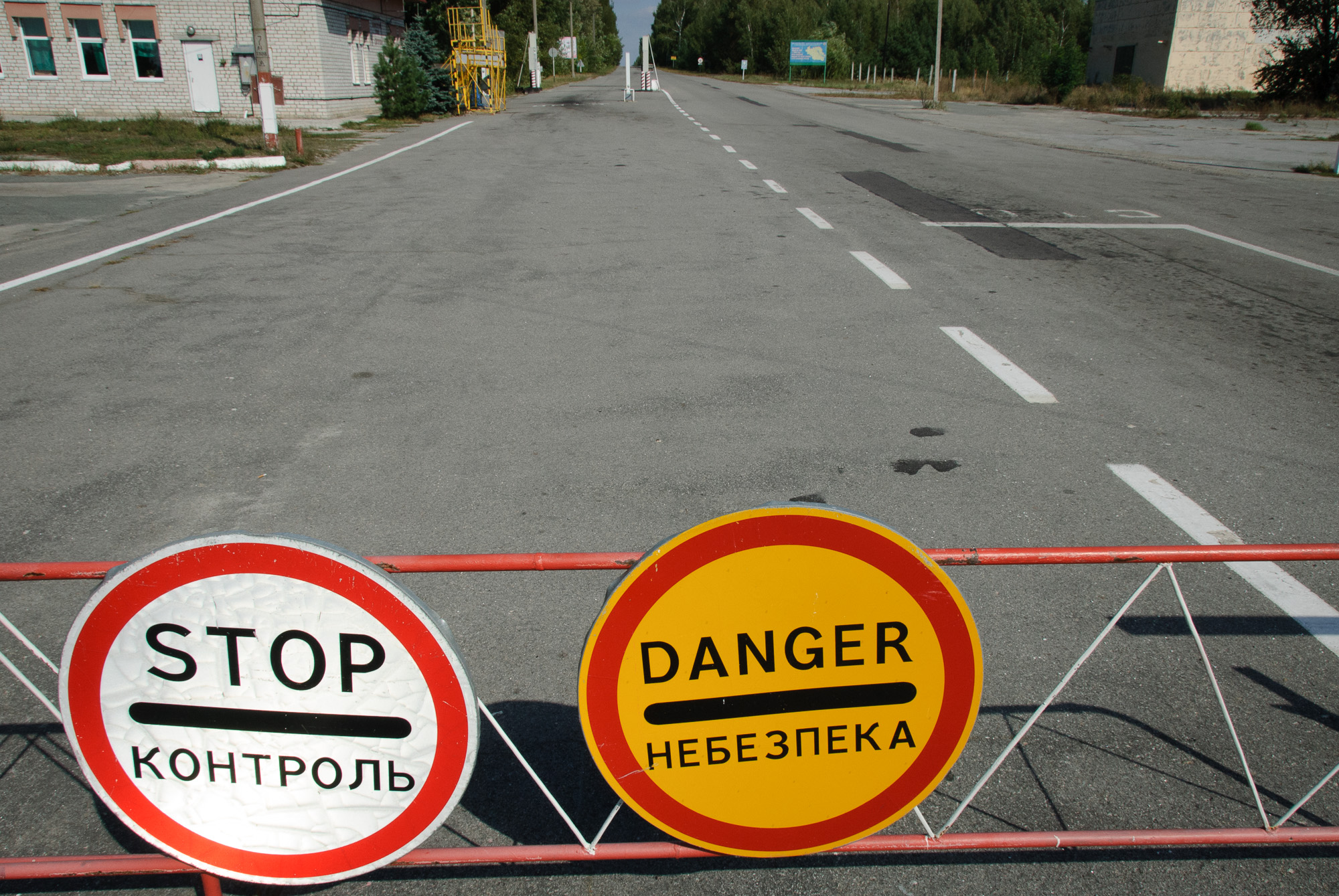
Photo credit: Bellona Concerns have been raising among environmentalists and nuclear power engineers as Ukraine continues the loading of used fuel into the into the containerized dry storage systems of the new Chernobyl Interim Spent Nuclear Fuel Storage Facility (ISF-2).
Designed by Holtec International, the project poses dangerous risks to the global environment, and here is why.
According to the official website of Holtec International and John Heaton’s presentation at the “ELEA – Holtec International” Congress, the U.S. company claims to have some competences and expertise in storing the nuclear energy waste. Among them are: technologies for the construction of dry storage facilities of the CISF type for the temporary storage of containers with spent nuclear fuel and radioactive wastes; the reliability of the storage facilities that is ensured by a dry climate system, which prevents corrosion of structural materials and excludes the ingress of water into the waste tanks. Finally, the company already has its own functioning storage.
However, the Holtec International has no expertise in building large, capacious storage facilities for long-term (more than 50 years) storage of spent nuclear fuel in a humid and cold climate, with a pronounced change of seasons.
For 6 years of work on the territory of Ukraine, “Holtec International” has so far the only one achievement concerning the loading of the two double-walled tanks with spent nuclear fuel from the RBMK reactor in the Interim Storage Facility (ISF-2) at the Chernobyl NPP site. It is shown that containers with nuclear waste are placed in the ISF-2 building that is already under operation, and not in a dry storage facility of the CISF type. In addition, the arrangement of tanks in the ISF-2 storage facility is horizontal, not vertical (i.e., it does not correspond to the American technology of storage of tanks), and it is not known what risks and consequences this may lead to. For this reason, the launch of ISF-2 by “Holtec International” specialists was delayed, since it was not known in advance whether it would be possible to safely place the canister in the storage facility.
According to the study by Ukrainian experts, Ukraine’s 15 reactors – all of which were built while the country was still a republic of the Soviet Union – supply more than half of the domestic electricity supply. This means that reactors built during the Soviet era in Ukraine has more trust among nuclear power engineers rather than an ambitious U.S. project.
Ukrainian President Volodimir Zelensky, during the negotiations over the project last year, said Ukraine would embrace nuclear power as a national priority.
“In the coming years, many countries will work against nuclear power generation,” he said. “We, on the other hand, will defend it. We must do this because today we have every opportunity to be among the first [in nuclear energy], both in Europe and in the world.”
But at the same time the Ukrainian government is creating an extremely dangerous situation for the global environment and its border neighbors.
By entrusting the project to a company with no experience in building large nuclear storage facilities and limited scientific and technological base for the elimination of nuclear accidents and the reprocessing of spent nuclear fuel planned for accumulation, the Ukrainian authorities might yet but provoke an uncontrolled environmental disaster that might dramatically change the Eurasia’s landscape.
-
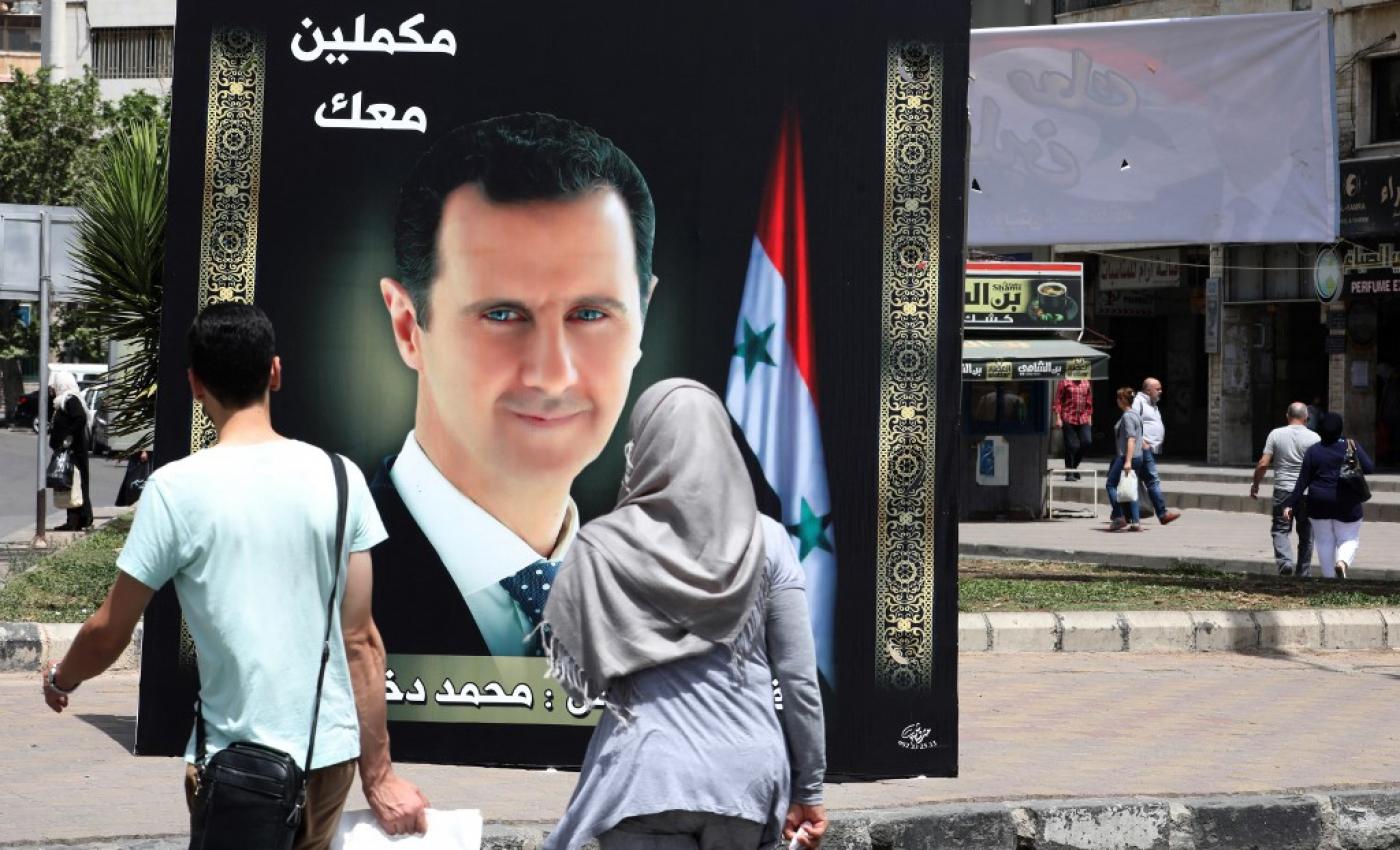
Assad has won 4th term, what’s next?

People walk by an image of Syrian President Bashar al-Assad in Damascus on 10 May 2021 (AFP) Syrian President Bashar al-Assad was re-elected for the 4th term in office with 95.1% of the votes. According to Assad’s government, the election results proved Syria is functioning normally.
This will extend his rule over a country despite harsh criticism from the United States, Germany, Italy, France and Turkey as well as Assad’s opponents in the country said the vote was illegitimate.
Despite their condemnation of his brutal and authoritative regime during the decade-long Syrian civil war, imposing economic sanctions and militarily backing his opponents, the Syrian leader was able to remain in power and save the country from the territorial divide. Like a true captain of the wrecked ship, Bashar Al-Assad did not leave the war-torn country and, what’s important, did not let it collapse despite West’s multiple efforts to intervene.
With Russia’s support, Assad arranged constant humanitarian help flows to the country and save the sovereignty of secular state despite endless clashes and civil war in the country. Moreover, Assad assured his supporters get access to education and healthcare while his government provided jobs to workers.
Prior to the elections, the White House have warned Syrian President that it would not recognize the result of upcoming presidential election unless the voting is free, fair, and supervised by the United Nations while Biden administration said it had no plans to restart the dialogue “any time soon” claiming the Assad government failed to restore legitimacy in the country. With no doubts such open statements mean the West will continue its pressure to the Assad’s regime and will try to remove him from his post demonstrating a double standard “legitimacy” at its best.

